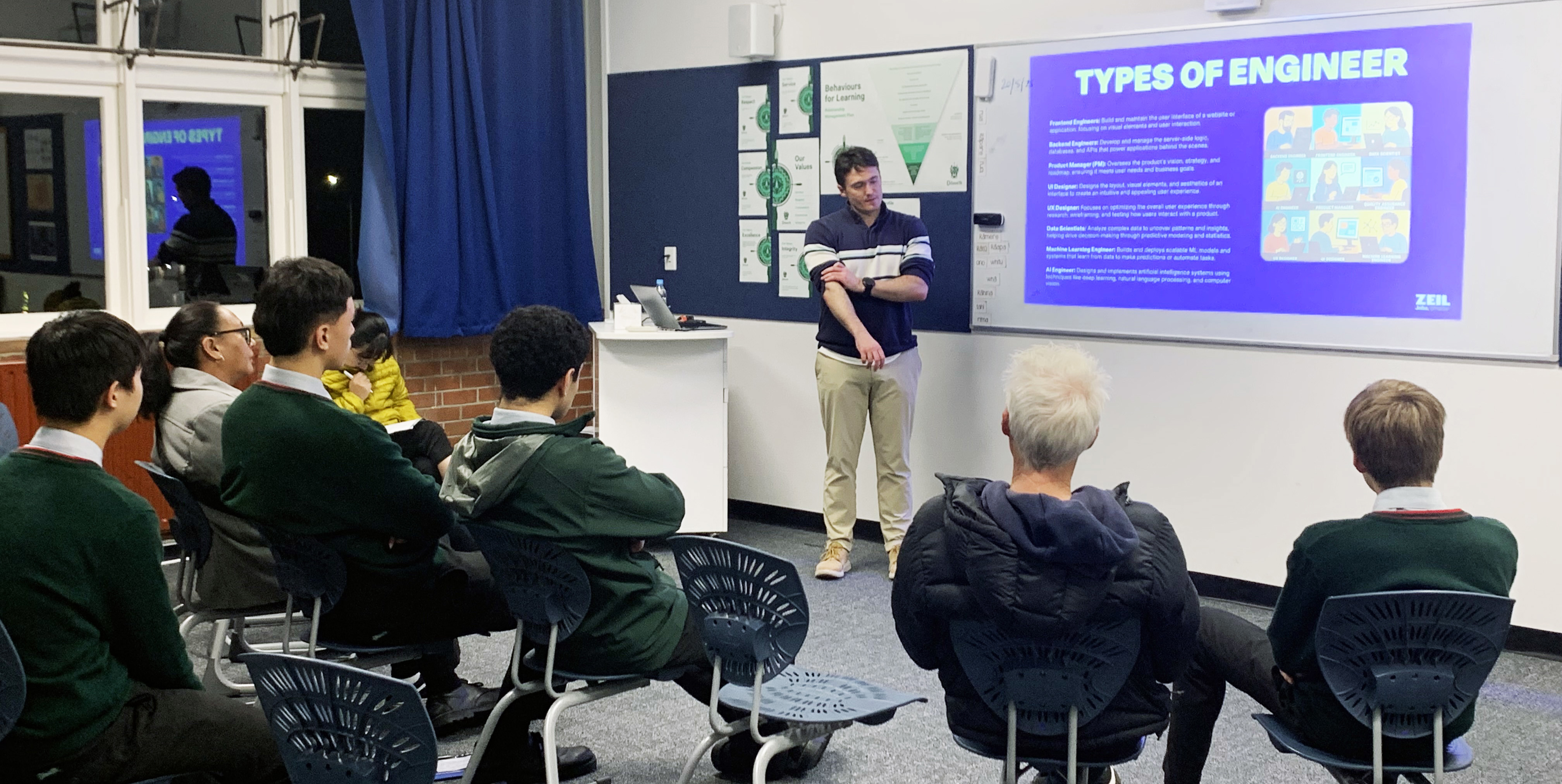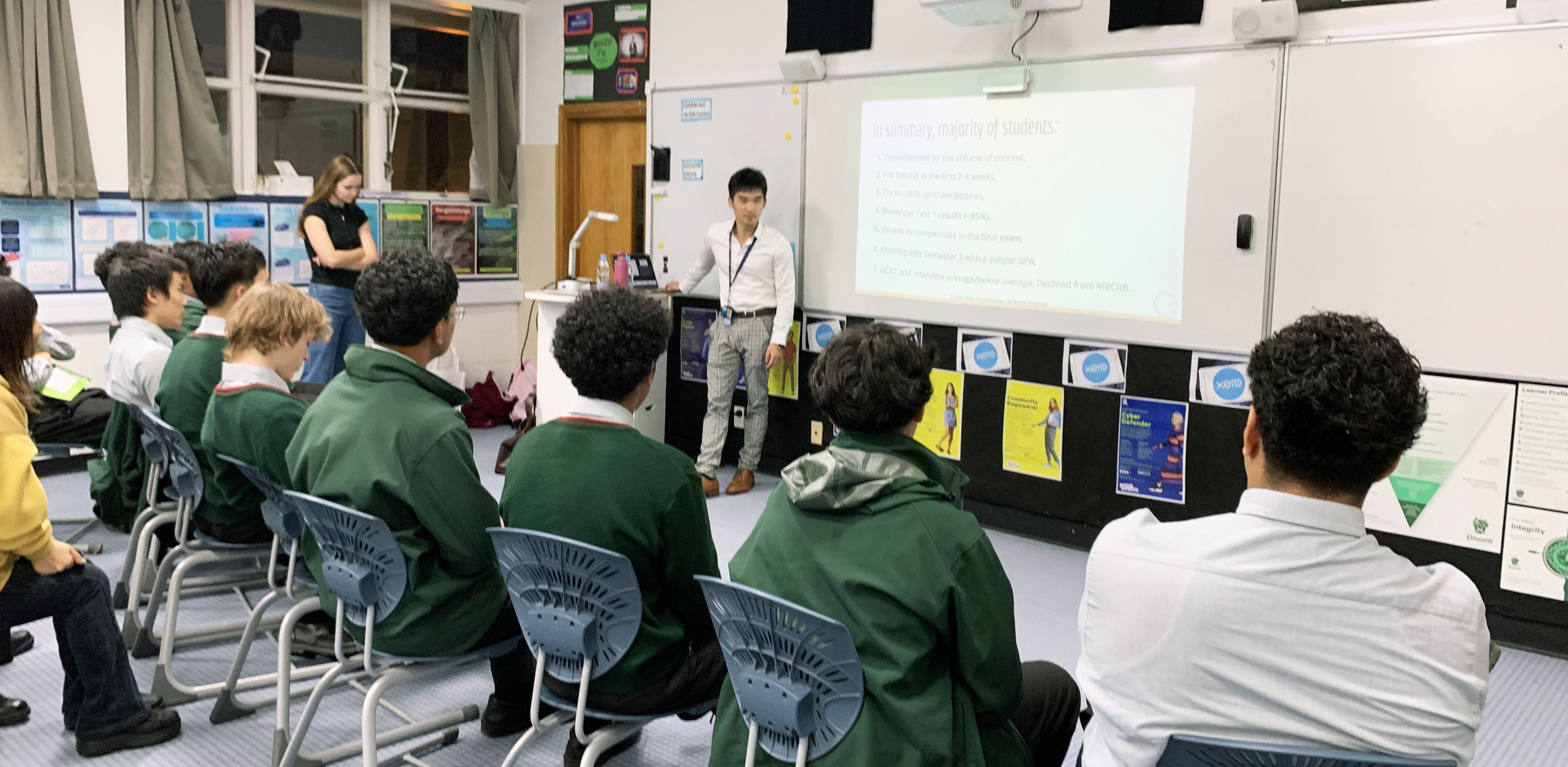The absolute focus of Dilworth’s exceptional Careers team is preparing students well for life beyond school.
The three-person team of Gemma Halford, Susanna Pattison, and Michelle Lean offers tailored support to students from Years 7-13, ensuring each student has a good understanding of the world of opportunities open beyond the school gates.
“Ultimately, we’re trying to help boys become more self-aware in terms of their strengths, interests, skills, what they enjoy learning and how they learn best. From there, we look to where that might lead,” says Gemma Halford, Head of Careers and Pathways.

Helping students gain real-world experience is a key part of the service, and the team has developed strong connections with a wide range of organisations - from employers and training providers to tertiary institutions. These partnerships span industries such as construction, engineering, IT, hospitality, finance, and the creative sector.
“You only know what you know, so we aim to give boys as many opportunities as possible to discover what’s out there,” Gemma explains.
Work experience, hands-on courses with training providers, and immersive site visits are all part of the offering. In Year 10, for example, students head to AUT for an on-campus university experience day, taking part in STEM, sport and recreation, and business and entrepreneurship workshops. They also take part in a campus tour—a particularly valuable experience that helps them become more familiar with life at university.
In Year 11, a Careers Day gives students the chance to choose from a range of different business visits - past destinations have included Jasmax, Arepa, and AS Colour. This is followed by a ‘Speed Meet’ session, where students connect with industry professionals back in the classroom.
“The boys love being out in the real world,” says Gemma. “It brings their learning to life.”
At the recent Careers Evening in May, students in Years 11–13 and their parents and caregivers had the opportunity to explore everything from the Defence Forces to Media Design School, with 18 industry providers in attendance.
AI-based recruitment firm Zeil had a strong presence, offering insights into AI and practical tools like CV builders. Zeil is also a gateway for job listings, ensuring students can be educated about the world of work, and also plugged directly into it.
Tailored to age and stage

Careers education at Dilworth begins in Year 7 and adjusts for age and stage right through to Year 13. Since its formalisation as part of the curriculum through the school’s reset project, it has been refreshed and aligned with the National Education and Learning Priorities (NELPs), interweaving the Ministry of Education’s seven defined employability skills.
When students reach Years 11 and 12, they undertake a semester-based course called Transition. Here, they’re learning life skills including financial literacy – budgeting, understanding payslips and tax, opening bank accounts, and exploring Kiwisaver – and other topics such as road safety as a young driver, food hygiene and career pathway planning. In Year 13, they take a closer look at the costs of study or further training, and the financial support available, such as student allowances and scholarships, gaining a vital head start before entering tertiary education or the workforce.
While all students have support through their years at school, students can also choose Pathways as its own subject in Years 12 and 13. As part of their course, these students might spend a day per week at NZMA or Unitec, testing out areas like plumbing, electrical work, or sports coaching. They can work with organisations like YouthTown, which offers employability workshops, and they have the opportunity to complete unit standards in vocational fields like automotive engineering or aviation.
Each Year 13 Pathways student receives one-on-one career planning through an Individualised Career Education Plan (ICEP) and will often undertake extended work experience - one day per week for five weeks or more - in placements that match their interests. Whether it's carpentry with a construction company, automotive training at Unitec, or retail work in an op-shop, the experience is curated for the student’s goals.
Dilworth’s small class sizes mean all the opportunities can be highly personalised. “We’re heavily involved in subject selection for our students, and what subjects lead to where, so we can best connect what they’re learning to the real world,” Gemma explains.
She notes the impact of this personalised approach on students like Dilworth alumnus.
Josiah Selini, whose interest in engineering was reinforced through a University of Auckland outreach session delivered by SPIES, a University of Auckland student association that supports Māori and Pasifika engineering students. With guidance from the Careers Team, Josiah applied for and received a Staples Education Foundation Scholarship and a University of Auckland Scholarship, opening doors to tertiary education and a future in a high-demand field.
Preparing for the future

Careers are constantly evolving, and Gemma observes shifting interests among students.
“We’re seeing fewer boys dreaming of YouTube stardom. Sports - especially basketball - are big right now. And increasingly, we’re seeing interest in AI and tech careers, which is why we’re building those connections with companies like Zeil.”
There’s also a growing interest in overseas study, with some students looking at Australian universities. To support this, a group of students will attend the Australian Careers Expo held in Auckland in June.
No matter what pathway a student may be considering—apprenticeships, trades, university, or work—Gemma says careers education is a genuine priority at Dilworth, and structured support is available to help students navigate their options.
“I never even walked into my school’s careers office,” she reflects. “I think it’s different for our students. They know we’re here, we care, and we can help. It’s such a rewarding role - seeing a student you’ve supported thriving years later and knowing you had a small part in that. That’s what makes it all worth it.”

